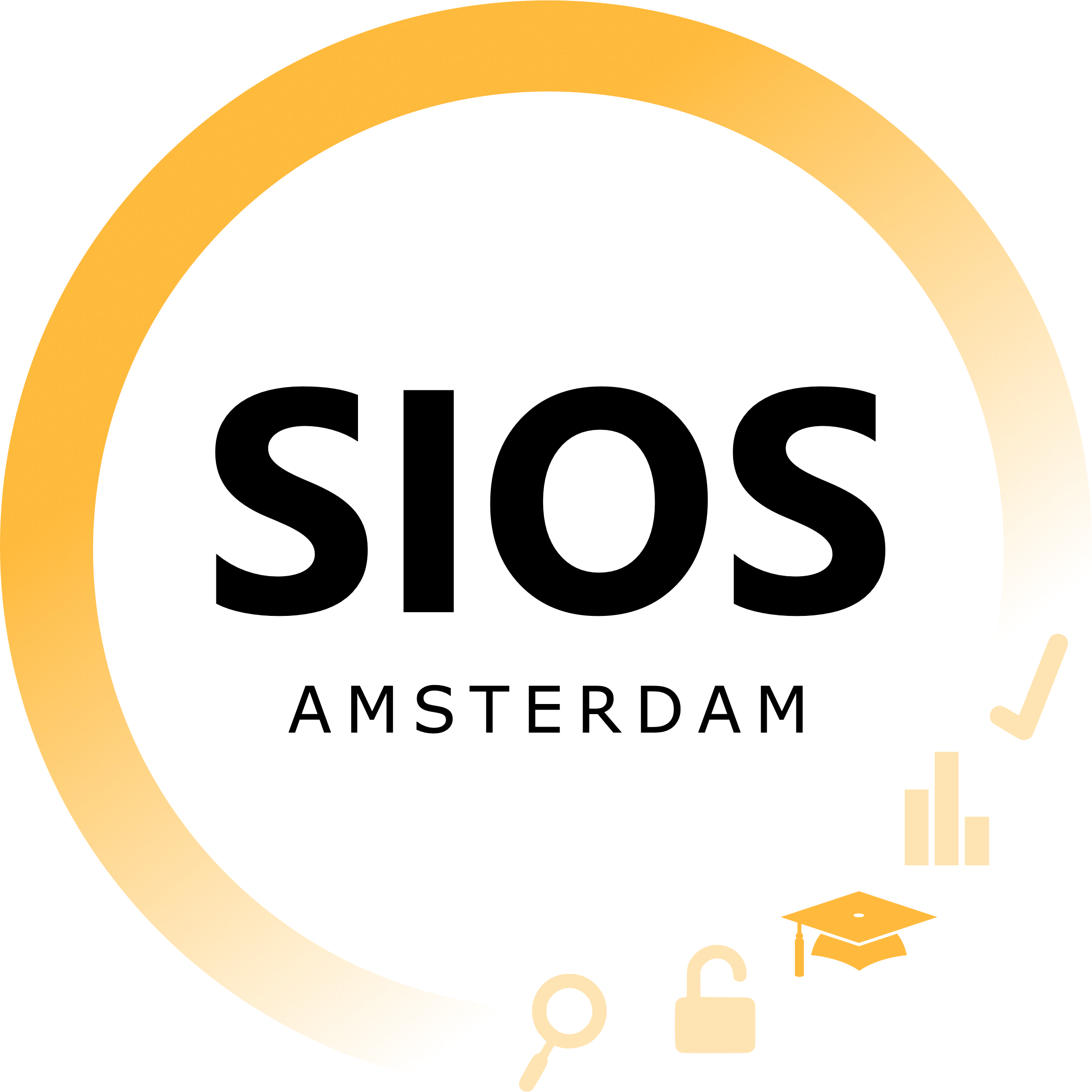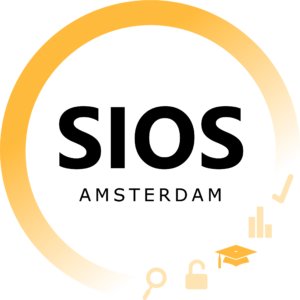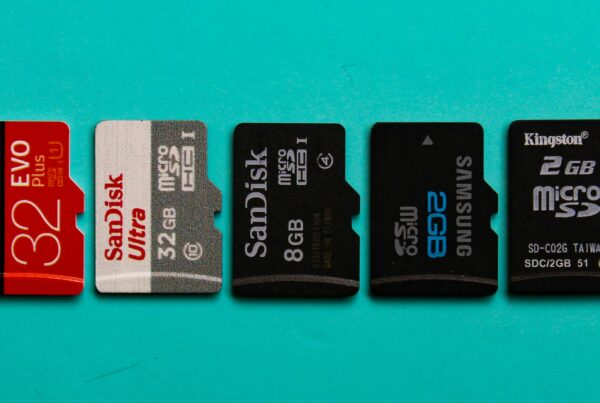
Obtaining a doctoral degree typically requires the publication of an average of four first-author papers. This requirement has been established with the intention of fostering research excellence and contributing to advancement of knowledge in the field in question – however, the expectations have not been without their challenges.
About the Authors
Nita and Safiyah are final-year MSc Biomedical Sciences students at the University of Amsterdam. Interested in psychopathology research, they value transparent science communication and open data access.
Obtaining a doctoral degree typically requires the publication of an average of four first-author papers. This requirement has been established with the intention of fostering research excellence and contributing to advancement of knowledge in the field in question – however, the expectations have not been without their challenges.
About the Authors
Nita and Safiyah are final-year MSc Biomedical Sciences students at the University of Amsterdam. Interested in psychopathology research, they value transparent science communication and open data access.
The emphasis on meeting publication requirements has generated external pressures among PhD candidates. Students often feel forced to publish prolifically, rather than producing longer-term high-quality research. Quickly, this has resulted in a culture of quantity over quality, arguably compromising the integrity of scholarly contributions. An example of this is discussed in Springer Nature’s Research Communities which details how the publication pressure is leading to a preference for safer, less complex research studies over more innovative work. Although this approach to publishing may be beneficial in fundamental research, it is a slippery slope that can stifle scientific progress and limit breakthroughs. Additionally, the tendency to value individual efforts, particularly first-authorship over collaboration, can limit the breadth of perspectives and ideas. Collaboration is often considered as being superior due to its ability to bring diverse perspectives and skills together. It also facilitates personal growth and enhances communication skills – qualities that are essential for modern researchers.
Recently, the conversation has shifted from worrying about the mental health of PhD candidates to tackling actual fraud. The unequal opportunities in academic publishing have deepened existing inequalities, placing more burden on research institutes with limited funding resources. This inequity has become particularly evident in the challenges faced by non-Western institutes, where accessing funding opportunities and prestigious, often Western, journals has become an uphill task.
In an article published earlier in 2023 in The Print, an Indian online newspaper, Mohana Basu, MSc, sheds light on the emergence of an illegal industry that exploits this pressure to publish research papers that academics in India experience. Basu highlights the prevalence of agents who collaborate with compromised peer-review boards, and discusses how this facilitates the publication of substandard or even completely fabricated research papers in Scopus-indexed journals. Quoting instances of individual PhD candidates paying to have their names included as co-authors or purchasing fully written research papers, the article demonstrates how the implications extend beyond ethics and impact the credibility of academic research, public trust in science, and the reputation of Indian researchers on an international scale.
This alarming trend has sparked an urgent call for Indian universities to overhaul their academic evaluation system, which has historically emphasised quantity over quality. Delays in graduation due to publication requirements exacerbate the issue, as noted in a Nature article by Mukund Thattai, a computational biologist at the National Centre for Biological Sciences in Bengaluru. Thattai decries the unethical practice of making students wait for journal publications, a situation that often prevents them from securing employment. Now, to tackle predatory journals, India has decided to cut the amount of papers required for a doctoral degree. This marked a pivotal shift towards a more ethical and quality-focused research environment. This initiative not only addresses the negative impact of publication quotas but also sets a precedent for the global academic community to re-evaluate doctoral requirements.
As we navigate the evolving landscape of doctoral education, it is essential for academic institutions worldwide to critically assess the impact of publication requirements on researchers and the quality of scholarly output. Striking a balance between encouraging productivity and fostering a supportive research environment will be key in ensuring that PhD candidates are equipped to make meaningful contributions to their respective fields without compromising their well-being or the integrity of academic research.
Student Initiative for Open Science
This article has been written as part of an ongoing collaborative project with the Student Initiative for Open Science (SIOS). The Amsterdam-based initiative is focused on educating undergraduate- and graduate-level students about good research practices.
SIOS is also looking for new members – if the article spoke to you and you would like to be part of the process of implementing the open science framework in the academic world, join today!
–
References
-
Basu, M. (2023, April 27). Indian PhDs, professors are paying to publish in real-sounding, fake journals. It’s a racket. ThePrint. https://theprint.in/ground-reports/indian-phds-professors-are-paying-to-publish-in-real-sounding-fake-journals-its-a-racket/1535766/
-
Bradshaw, H. K. (2023, October 30). Under Pressure (to publish): The Perilous Plight of Psychology PhD Students. Research Communities by Springer Nature. https://communities.springernature.com/posts/under-pressure-to-publish-the-perilous-plight-of-psychology-phd-students
-
Lem, P. (2022, December 20). India axes publication goal for PhDs to tackle predatory journals. Times Higher Education (THE). https://www.timeshighereducation.com/news/india-axes-publication-goal-phds-tackle-predatory-journals
The emphasis on meeting publication requirements has generated external pressures among PhD candidates. Students often feel forced to publish prolifically, rather than producing longer-term high-quality research. Quickly, this has resulted in a culture of quantity over quality, arguably compromising the integrity of scholarly contributions. An example of this is discussed in Springer Nature’s Research Communities which details how the publication pressure is leading to a preference for safer, less complex research studies over more innovative work. Although this approach to publishing may be beneficial in fundamental research, it is a slippery slope that can stifle scientific progress and limit breakthroughs. Additionally, the tendency to value individual efforts, particularly first-authorship over collaboration, can limit the breadth of perspectives and ideas. Collaboration is often considered as being superior due to its ability to bring diverse perspectives and skills together. It also facilitates personal growth and enhances communication skills – qualities that are essential for modern researchers.
Recently, the conversation has shifted from worrying about the mental health of PhD candidates to tackling actual fraud. The unequal opportunities in academic publishing have deepened existing inequalities, placing more burden on research institutes with limited funding resources. This inequity has become particularly evident in the challenges faced by non-Western institutes, where accessing funding opportunities and prestigious, often Western, journals has become an uphill task.
In an article published earlier in 2023 in The Print, an Indian online newspaper, Mohana Basu, MSc, sheds light on the emergence of an illegal industry that exploits this pressure to publish research papers that academics in India experience. Basu highlights the prevalence of agents who collaborate with compromised peer-review boards, and discusses how this facilitates the publication of substandard or even completely fabricated research papers in Scopus-indexed journals. Quoting instances of individual PhD candidates paying to have their names included as co-authors or purchasing fully written research papers, the article demonstrates how the implications extend beyond ethics and impact the credibility of academic research, public trust in science, and the reputation of Indian researchers on an international scale.
This alarming trend has sparked an urgent call for Indian universities to overhaul their academic evaluation system, which has historically emphasised quantity over quality. Delays in graduation due to publication requirements exacerbate the issue, as noted in a Nature article by Mukund Thattai, a computational biologist at the National Centre for Biological Sciences in Bengaluru. Thattai decries the unethical practice of making students wait for journal publications, a situation that often prevents them from securing employment. Now, to tackle predatory journals, India has decided to cut the amount of papers required for a doctoral degree. This marked a pivotal shift towards a more ethical and quality-focused research environment. This initiative not only addresses the negative impact of publication quotas but also sets a precedent for the global academic community to re-evaluate doctoral requirements.
As we navigate the evolving landscape of doctoral education, it is essential for academic institutions worldwide to critically assess the impact of publication requirements on researchers and the quality of scholarly output. Striking a balance between encouraging productivity and fostering a supportive research environment will be key in ensuring that PhD candidates are equipped to make meaningful contributions to their respective fields without compromising their well-being or the integrity of academic research.
Student Initiative for Open Science
This article has been written as part of an ongoing collaborative project with the Student Initiative for Open Science (SIOS). The Amsterdam-based initiative is focused on educating undergraduate- and graduate-level students about good research practices.
SIOS is also looking for new members – if the article spoke to you and you would like to be part of the process of implementing the open science framework in the academic world, join today!
–
References
-
Basu, M. (2023, April 27). Indian PhDs, professors are paying to publish in real-sounding, fake journals. It’s a racket. ThePrint. https://theprint.in/ground-reports/indian-phds-professors-are-paying-to-publish-in-real-sounding-fake-journals-its-a-racket/1535766/
-
Bradshaw, H. K. (2023, October 30). Under Pressure (to publish): The Perilous Plight of Psychology PhD Students. Research Communities by Springer Nature. https://communities.springernature.com/posts/under-pressure-to-publish-the-perilous-plight-of-psychology-phd-students
-
Lem, P. (2022, December 20). India axes publication goal for PhDs to tackle predatory journals. Times Higher Education (THE). https://www.timeshighereducation.com/news/india-axes-publication-goal-phds-tackle-predatory-journals



